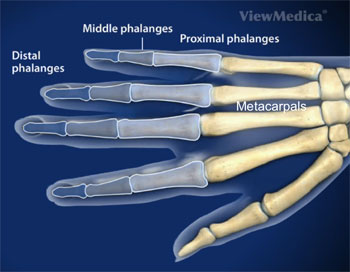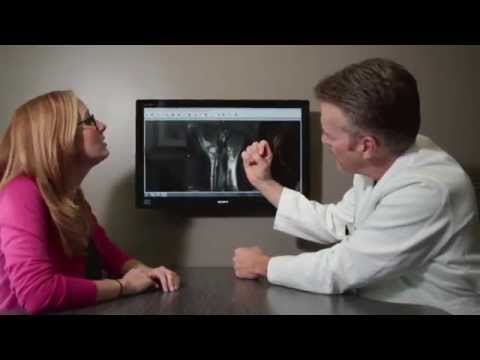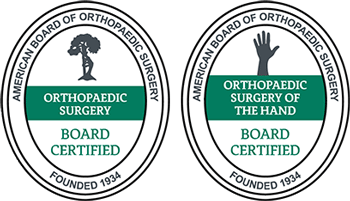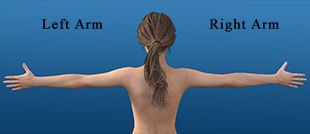Hand Fractures: Symptoms & Treatment
Hand fractures account for about 19% of all breaks. Most hand fractures involve the metacarpals in the palm. Men between 15 and 35 are the most likely to experience this type of injury. A hand fracture can be a minor pain or a significant problem, depending on its location, nature, and severity. You should always consult a top hand surgeon in Dallas if you suspect a hand injury to make sure there are no floating bones or other complications that may require surgery.
Contents
Symptoms, Diagnosis, and Treatment Options
A hand fracture is a broken bone somewhere in the hand. The hand consists of 27 bones, including the small phalanges in the fingers and thumb and the longer metacarpals that form the palm. Hand fractures fall into one of four classifications:
- Proximal: A finger fracture, often caused by a direct contact injury in sports
- Metacarpal: A fracture to the bones in the palm, often caused by a punch
- Carpal: A broken bone at the base of the hand
- Avulsion: A fracture where a small piece of bone floats away from the main bone and remains loose in the hand
Not all hand fractures require surgery. Sometimes, icing, resting, and immobilizing the area is sufficient. If the fracture isn’t properly positioned to heal on its own, surgical treatment may be necessary to maintain hand function and ensure proper healing.

Common and Uncommon Symptoms of Hand Fractures
You’ll likely notice a hand fracture at the time of injury, but you may not know how severe the situation is. Symptoms can include:
- Pain and tenderness
- Swelling or bruising
- A bump at the injury site
- Difficulty moving your hand
- A weak grip
- An unusual hand shape
- Sunken knuckles
A skilled hand specialist may be able to identify a hand fracture with a physical examination. However, an X-ray is always used to diagnose the nature and extent of the injury fully.
Surgical Procedures for Hand Fractures
Immobilization and nonsteroidal anti-inflammatory drugs are the most common treatment plan for a hand fracture. However, some cases need surgical intervention. Your doctor may suggest surgery if:
- You have an open fracture where the skin is broken.
- The pieces of the bone are out of place.
- The fracture extends into a joint.
- There’s damage to your nerves, blood vessels, or ligaments.
- Loose bone fragments are floating in your hand.
Hand fracture surgery is known as a closed reduction and fixation. The process begins with realigning the bones to restore them to their proper place, which is known as reduction. The bones are then secured in place through a process known as fixation. There are many types of fixation, and a skilled surgeon will know the best approach. Your hand operation may involve the use of rods, wires, pins, plates, staples, and screws.
Customized Surgery Plans Based on Your Specific Needs
Each fractured hand surgery is different, and our hand specialists in Dallas, Texas, take a mindful and personalized approach to each case. The surgeon considers your age, health, activity level, and hand pain. In most cases, the traditional closed fixation is the best option. However, if you’ve suffered a severe injury with major damage to the skin and tissue, your surgeon may also opt for an external fixation where the plates and rods are placed outside your hand, and screws go through the skin into the bone.
Take the time to speak with our hand surgeons in Dallas about your specific injury to determine which approach is right for your needs. Our hand specialists will take the time to answer your questions, explore the options, and explain the next steps in detail so you know when and how to move forward with your hand fracture surgery.
Recovery and Rehabilitation
Recovery varies by case. Hand surgery always involves a rehabilitation period with prescribed activities to help you restore function. Our hand specialists will give you a personalized recovery plan that’s uniquely suited to your case.
What To Expect During the Recovery Period
The average recovery time for hand fracture surgery is six weeks, though it may take as many as 12 weeks to regain full mobility. Some cases may require 14 weeks of recovery time or more. Speak with your doctor for the most accurate estimate of your hand fracture surgery. Soreness and pain typically occur immediately after the surgery, but these resolve quickly. Stiffness and minor discomfort may persist for longer.
A brief period of immobilization may be required as part of the recovery process. However, you should begin moving your hand gently as soon as the surgeon recommends.
Rehabilitation Techniques
Hand rehabilitation exercises will speed up your recovery and help restore your range of motion. Your hands are an essential part of your body, and you should follow all of your surgeon’s recommendations for physical therapy and rehabilitation exercises. The specific hand motions will vary by patient and depend on your injury’s location, type, and extent. Your doctor will probably recommend a physical therapist who will work closely with you throughout your recovery to restore your joint motion, hand flexibility, and muscle strength.


How can Dr. Knight help you with Hand Fractures?
Fractures to the hand can be traumatic and frightening injuries, which may have lasting effects to the mobility and function of the hand, so it important that you seek out the best care possible when having one treated. In his years of practice, Dr. Knight has trained extensively on the repair of fractures, and has treated an untold number of them, so that his experience lends him great skill and understanding of the problems that can arise as a result of fractures. If you want to be treated quickly, efficiently, and with skill, then Dr. Knight is the doctor for you.
See Dr. Knight, one of the best hand surgeons in Dallas and see if he can help you live a more pain free life. Come to our Southlake hand and wrist center or Dallas Fort-Worth friendly office location.
Testimonials

Dr. Knight saved my career! Thanks to Dr. Knight and his staff for the excellent treatment and care now I am able to lifeguard again with full motion of my right hand. Dr. Knight was able to see me the day I was told I needed to see a hand specialist and that I has broken my right hand. I was in surgery within three days and on my way to a quick and fast recovery. Now I am back to work and feeling amazing!!!
If I ever need treatment I will definitely be seeing Dr. Knight. Thank You!!!
Dylan Fait, Lifeguard
Hand Fractures Fact Sheet
| How am I likely to have fractured my hand? | The bones of the hand are delicate, and therefore susceptible to breaking as the result of trauma to one or both hands. Crush fractures are the most common, but stress and torsion can also lead to breaking the bones of the hand. |
| Do I need to see a doctor to treat a fractured hand? | Fractures should not be treated without medical oversight, and the hand is particularly difficult to treat, so in order to ensure that you are able to regain full function in the hand it is imperitive that you seek medical treatment to address the problem. |
| What kinds of medications are effectie at treating a fractured hand? | Anti-inflammatory and pain relief medications can help releive the pain and swelling associated with fractures to the bones of the hand. |
| How long-lasting are the effects of a fractured hand? | If not properly set during the healing process, broken bones in the hand can heal unevenly, and leave you with lasting damage that will affect your ability to use that affected hand. |
| What is the course of treatment for addressing my fractured hand? | Setting of the bones and casting is standard, as with most fractures, but in some cases surgery may be necessary to ensure complete and proper alignment of any particularly complex breaks. Some particular bones of the hand may also have more complicated treatments, or even require replacement or implants to regain function. |
Frequently Asked Questions:
How do I know if my hand is fractured?
As with all fractures, a fracture to the metacarpal bones of the hand will be accompanied by some form of trauma, and then quickly by pain, swelling, bruising, redness, and loss of function, depending on the severity of the break. If your hand is fractured in such a way that these apparent symptoms do not manifest, but you are still worried you may have suffered a break, you can undergo a physical examination to determine if you do, in deed, have a fracture, and an x-ray will show for certain if there is a break.
Do hand fractures require surgery?
Typically, a simple hand fracture does not require surgery, and can be rest manually by the doctor and splinted or cast, with pain and anti-inflammatory medication given to help with the swelling and pain. If the break is more severe or the bones are out of alignment, or if there are multiple pieces of bone that need to be put back into place, then surgery may be necessary, but it is generally a last resort.
Can a hand fracture heal on its own?
If the fracture in question is a hairline and the patient is able to adequately immobilize the hand for a period of time that will allow for healing, then it is possible, but generally people work and speak with their hands and so the level of immobility necessary to properly heal a fracture without some kind of intervention is impossible to reach. If you think you have a fracture, it is important to seek medical attention as soon as possible to avoid any complications that may arise from untreated symptoms of your injury.
How long does a hand fracture take to heal?
While the severity of the fracture and the general health of the patient can have some effect on the speed of healing, it usually takes somewhere from three to six weeks of immobilization for a fracture of the hand to heal completely.
Can a hand fracture heal without a cast?
Some fractures don’t require casting, and may only need a splint or wrapping, but in the case of the hand, it is best to immobilize the affected area in some way so that further injury is avoided.
Videos
Animated Videos
Surgical Video
Note: The following video contains graphic images.
Disclaimer
HandAndWristInstitute.com does not offer medical advice. The information presented here is offered for informational purposes only. Read Disclaimer

























